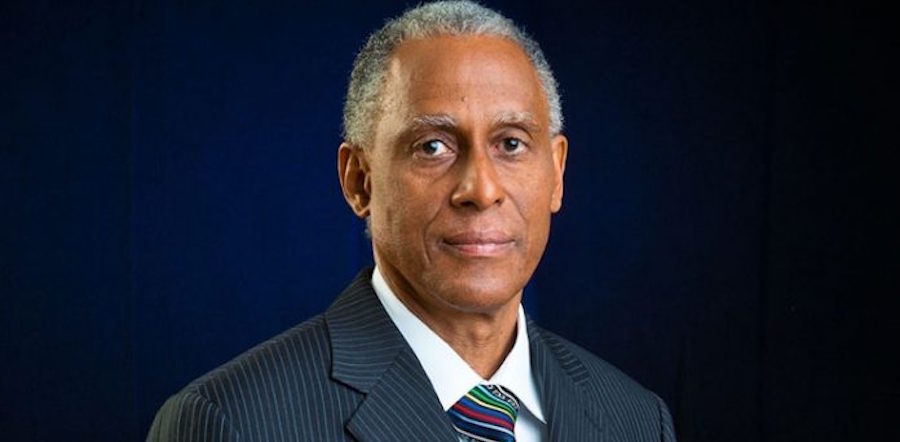The head of the Caribbean Community’s judicial tribunal has called for more countries to embrace it as its highest court of appeal which remains outside the jurisdiction of most CARICOM nations nearly 20 years after it was established.
President of the Caribbean Court of Justice (CCJ) Justice Adrian Saunders told the United Nations Development Programme’s (UNDP) launch of its Regional Needs Assessment Report on the Administration of Justice in nine Caribbean countries, it was time for the region to promote homegrown jurisprudence.
Justice Saunders said: “From the vantage point of a judge of the CCJ the critical question is for me, what can the broader community do to advance Caribbean jurisprudence?
“Of course it goes without saying that a momentous forward step in promoting Caribbean jurisprudence would be taken if all the states in the region follow the lead of Barbados, Guyana, Belize and Dominica in embracing the CCJ as the final court of appeal.
“This is not the event to flog that horse but events occurring over the last two and half months have brought into sharper relief the incongruity of most of the region’s final appeals being heard in London by the Lordships of Her Majesty’s Privy Council.”
Justice Saunders said there were other “important ways” to promote Caribbean jurisprudence, such as the need for a change in legal education material.
He said after 50 years much of the course work taught in the region was not based on Caribbean law.
Said Justice Saunders: “This year marks exactly 50 years since the English speaking Caribbean began the teaching of law in the region…after 50 years this is a good time to reflect and take stock. I was in the third cohort of law students attending the faculty and in those early years all textbooks we studied from were written for students studying in the United Kingdom and the bulk of the case law used to teach us was cases decided in the United Kingdom and of course, the final word in what represented the law was the judgments of the Privy Council.
“The question is this; after 50 years of producing our own lawyers, judges, legal academics and our own final appellate court, how much has changed with respect to the teaching of the law?”
He said he had spoken to UWI Vice-Chancellor Professor Sir Hilary Beckles on the possibility of partnering on a project with the CCJ that would analyze course materials and worksheets used in certain core subjects of the curriculum in the Faculty of Law.
Justice Saunders said this was aimed at transitioning from teaching English law to a more “Caribbean-centric jurisprudence”.
He also lamented the “fall off” in commentaries on Caribbean judgments.
The countries featured in the report are Antigua and Barbuda, Barbados, Belize, Dominica, Grenada, Guyana, St Kitts and Nevis, St Lucia and Trinidad and Tobago.
The report revealed that the backlog of cases in those countries was caused by a number of factors including slow investigations carried out by the police, delays in the deposition process and a lack of human and technological resources.
Established in 2001, the Caribbean Court of Justice is the tribunal that interprets the Revised Treaty of Chaguaramas, the regional bloc’s constitution and referees disputes among all 15 member states – the court’s original jurisdiction.
But the court has struggled to gain membership on its appellate branch, which replaces the Privy Council in London as the final court of appeal in five CARICOM nations, including Barbados. Dominica, a republic, became the last country to join the CCJ five years ago.
This year the court had found itself at the heart of the election controversy in Guyana.
The CCJ has also spearheaded efforts to reform the judicial systems in CARICOM member nations which are often cited for delays in the dispensing justice under archaic rules and mechanisms.
The court has pioneered the development of homegrown software in a bid to streamline court processes across the region.




